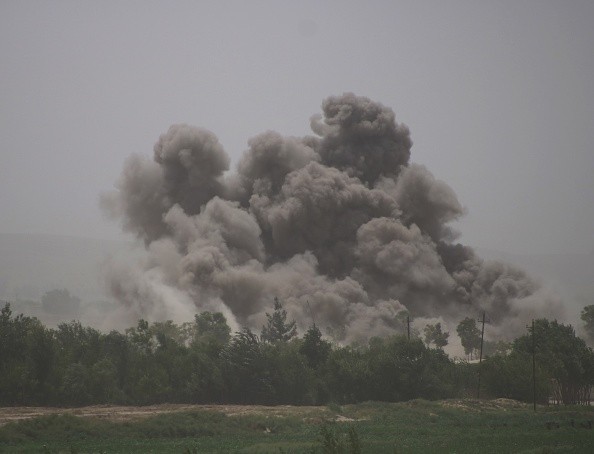As foreign troops leave Afghanistan and the Taliban make fast combat gains, the U.S. will continue a constant cadence of airstrikes.

Biden Ordered B-52 Bombers and AC-130 To Hit Afghanistan Grounds
In a recently published article in MSN News, President Joe Biden authorized B-52 bombers and AC-130 Spectre gunships to attack enemy fighters approaching Kandahar and other towns. Questions were directed to the Defense Department by a spokesperson for the National Security Council.
According to the U.S. Central Command, the U.S. military planes have begun striking ground targets in Afghanistan in an attempt to defend friends as the Taliban makes fast gains in the vacuum left by the withdrawal of US and NATO soldiers.
U.S. Air Force Maj. Nicole Ferrara, a U.S. Central Command spokesperson, released a statement through an email and said "U.S. forces have conducted several airstrikes in defense of our Afghan partners in recent days," according to a published article in Bloomberg.
U.S. Citizens Urged to Leave Afghanistan Immediately Amid the Growing Armed Conflicts and Tensions
According to a statement on its website, the US Embassy in Kabul encouraged U.S. citizens to leave Afghanistan immediately utilizing available commercial aircraft choices, citing security concerns and decreased personnel. This is amid the growing tensions in the country due to armed conflict.
By the end of August, the United States' foot troops in Afghanistan will be completely depleted. The Taliban has also been gaining land and capturing customs stations at Afghan border crossings, stealing a large portion of the government's income.
However, the United States will continue to carry out airstrikes in Afghanistan against the Taliban, but no promises have been made regarding what will happen beyond August 31. Last month, US Marine Corps Gen. Frank McKenzie said that the US had intensified airstrikes against Taliban militants, according to CNBC.
Taliban Group Continued to Advance in Hundreds of Districts
General Mark Milley, chairman of the Joint Chiefs of Staff, said that the Taliban has gradually extended its Afghan territory in recent months, holding half of the country's 419 districts and exerting pressure on provincial capitals. This happened after the foreign troops started to withdraw troops in Afghanistan.
Militants now have a significant presence across Afghanistan, especially in the north and north-east, as well as central regions like Ghazni and Maidan Wardak. Major cities like Kunduz, Herat, Kandahar, and Lashkar Gah are also under siege, according to a published report in BBC News.
Meanwhile, according to a 2017 study, the Taliban had complete control of a number of areas. However, the study revealed that they were active in many other regions of the nation, conducting weekly or monthly assaults in certain places, implying much greater power than earlier estimates.
Moreover, the study also found out that about 15 million people, or half of the population, were said to live in Taliban-controlled regions or areas where the Taliban was openly present and frequently attacked government troops. On the other hand, the situation on the ground remains uncertain, despite the fact that they currently control more land than they have since 2001.
Related Article : Blinken Sees Taliban Advancement in Afghanistan as 'Deeply Troubling'








